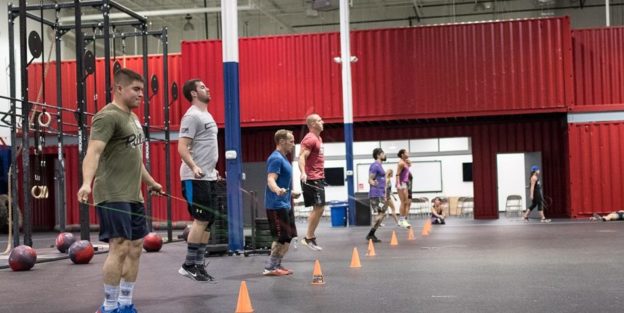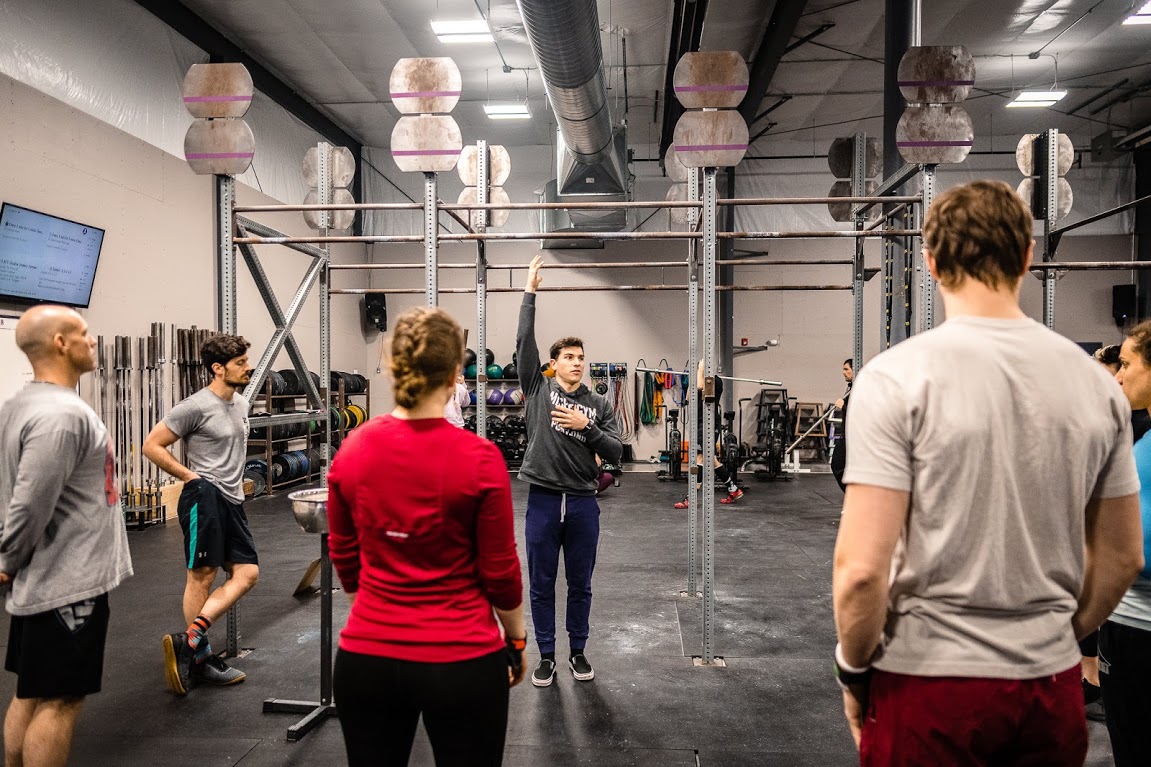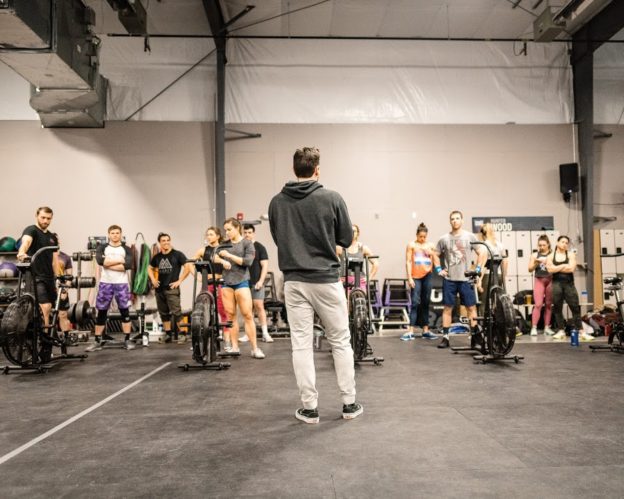
Coaches: Put a Lid On It

One of the biggest pitfalls a new coach frequently falls into is the belief that they need to talk or “coach” every minute of every class. Similarly, many coaches try to talk over loud music or the revving of machines and dropping of barbells, making it super easy for members to tune out or not hear what you’re saying. Often times a coach feels like they’re not doing their job if the air isn’t audibly filled with cues, motivation, or corrections, so they resort to over-coaching or trying to cram too much into class.
Be it a confidence issue, a public speaking issue, or simply a lack of experience, these things can inadvertently discredit your coaching ability. Think about it this way – everyone has that one friend who loves to talk… about anything… all the time. How often do you identify the impending tangent and simply tune out? The same thing happens to you as a coach – talking so much or so frequently that members cannot differentiate what’s important or not, and therefore miss valuable points you may have. It happens even to the best of us, so here are a few tips to make sure you’re effectively passing your knowledge along to your members.
Turn off the music
Whether you’re just getting started with your class at the whiteboard or are discussing the stimulus before you send your members into the workout, background noise is a huge distraction. Loud music is obviously very difficult to project your voice over and more often than not members will continue doing what they’re doing instead of stopping to listen to you. On the other hand, quiet music is distracting enough for members to quietly continue chatting with friends or say to themselves “coach isn’t talking to me, I’m going to keep doing what I’m doing”. If you’re teaching a movement or have something important to give to the entire group, kill the music, get everyone’s attention, and say what you need to say quickly and simply.

Group huddle
This is situation-dependent, but many times it’s more effective to bring your entire group into a quick huddle. Whether it’s a common fault you’re seeing during a strength session, or you’re answering a question multiple members have asked you, a huddle is an effective way address everyone at once. If you’ve got something important to pass to the whole group, bring everyone in, kill the music, and quickly address the point.
Don’t over-coach
At TMF HQ, we run our version of the Competitor program where we usually have a lift followed by a metcon. Some days the amount of time to teach in class is limited, so it’s important to pick your battles. A workout with overhead squats, pull ups, and rowing does not require three skill sessions, especially if your class is big or is on a tight timeline. Members will gain more if you ask them to focus a lot of energy on one element instead of touching briefly on everything. Pick one thing to work on with everyone, provide scaling options for the rest, and then finally help individual members if they still need it. If you try to coach everything, you coach nothing.

Be brief with the group, thorough with the individual
This last point encompasses a bit of everything. When you’re providing information or are leading your entire group through part of class, you need to command the entire group. That being said, be brief, clear, and concise. Once you get everyone moving in the right direction on their own, turn the music back up and then continue teaching and correcting individual athletes more thoroughly. You can have a much more deliberate conversation with someone on an individual basis and worry less about the points above because you’re talking directly to one person whose attention is undivided. That being said, you still have a responsibility to not coach their ear off unless that’s what they’re asking for.
If you’re a new coach, understand that it’s going to take time to settle into your coaching style and for members to trust and recognize that you know what you’re doing (hopefully you do). It can do more harm than good to try and dazzle everyone with your knowledge and vocal stamina, so next time you’re coaching class try to remember that much like in training, less is usually more.
Written by Hunter Wood


Responses